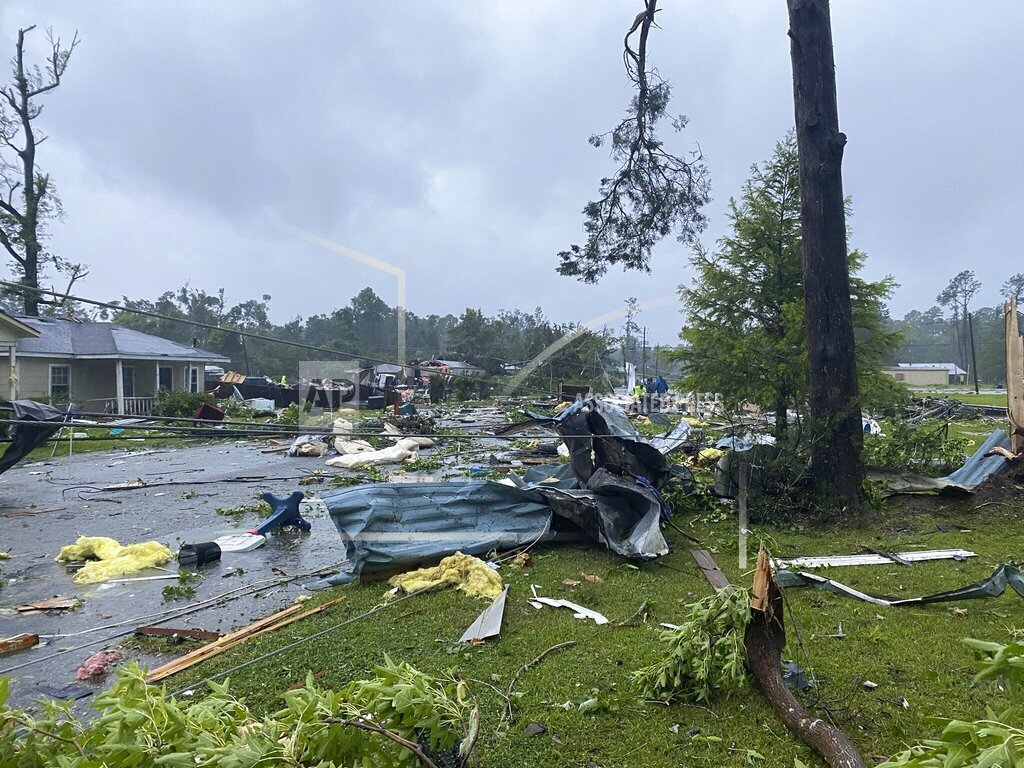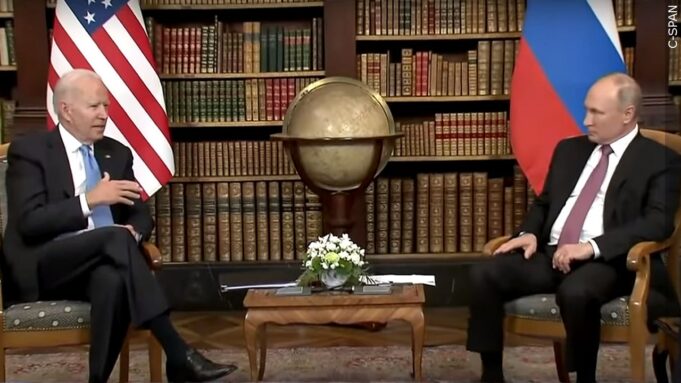WASHINGTON—U.S. President Joe Biden and Russian President Vladimir Putin met in Geneva June 16 as Western powers are positioning themselves in the face of a shift in geopolitical power away from the United States.
After a three-hour session, the two sides agreed to set up working groups to deal with nuclear arms control, as well as cyberattacks. The sides also agreed to send ambassadors back to their posts, restoring “normal diplomatic relations.”
“I did what I came to do,” Mr. Biden told reporters in a press appearance separate from Mr. Putin, “number one, identify areas of practical work our two countries can do to advance our mutual interests and also benefit the world; two, communicate directly—directly—that the United States will respond to actions that impair our vital interests or those of our allies; and, three, to clearly lay out our countries’ priorities and our values. So, he heard it straight from me,” Mr. Biden said.
But Mr. Biden’s “victory lap” after the series of summits, including the G-7 strongest economies, the North Atlantic Treaty Organization (NATO), may have been premature.
“Well, not only is it premature, it’s wildly misplaced,” Dr. Gerald Horne, professor of history and Africana Studies at the University of Houston said in an interview.
“The United States has dug itself into a deep hole. And at some point, there needs to be a serious discussion about how the United States actually empowers the rise of the People’s Republic of China because of this obsession with the then Soviet Union, which caused it to make all manner of concessions to Beijing,” Dr. Horne said.
Mr. Putin described his conversation with President Biden as “constructive.”

“I believe that there was no hostility. On the contrary, our meeting, of course, took place in a principled manner. Our assessments on many points differ, but, in my opinion, both sides demonstrated a desire to understand each other and look for ways to bring their positions closer. The conversation was very constructive,” Mr. Putin said according to published reports.
“It’s apparent that Mr. Biden is being naive at best when he puts so much emphasis and weight on personal relationships in terms of the relationship between nations,” said Dr. Horne. “I think that personal relationships can be a factor but they are insignificant compared to the class interests, race interests, geopolitical interests, et cetera. And that brings us back to China.
“In order to keep the United States government going from day to day, the United States treasury has to borrow billions regularly from the People’s Bank in Beijing. And if China turns off that spigot, the United States will either have to raise taxes, which is considered to be the mark of the devil according to many in this country, or we’ll have to cut programs, such as education and health care.
“So, this is the dilemma that the United States now faces and I’m not sure if this summit with Mr. Putin helped to assuage that particular concern,” Dr. Horne continued, concerning the summit.
Normal diplomatic relations have been restored, and a more cooperative atmosphere has been established so that the U.S. and Russia can work together, as President Biden stressed, in areas where their common interests do actually coincide.
For its part, China says the U.S. and its NATO allies are adopting a “Cold War mentality” after the military alliance singled out China and Russia for criticism during their summit in Brussels. In its final communiqué, NATO leaders said, “China’s stated ambitions and assertive behavior present systemic challenges to the rules-based international order.”
“Well, it’s clear that the U.S. administration feels that it has to at least neutralize Russia so that there can be this pivot towards China, but that’s going to be very difficult because a lot of anti-Moscow sentiment was built up in this country during the proceeding epic referring to the Cold War,” said Dr. Horne. “And in any case, I’m not sure if Russia sees any upside to making nice with the United States in light of the fact, and Mr. Putin knows that the fondest hope of the hawks in Washington is to overthrow his regime.”
Mr. Putin may very well be the principal beneficiary of the summit, according to Masha Greene, an author and staff writer for The New Yorker. “I think that this is an event that’s more significant for Vladimir Putin,” she told Democracy Now!
“The very fact of the summit, the fact that Biden called him a ‘worthy adversary,’ that he called him ‘bright,’ that he is being treated as someone to sit down with and discuss the world, all of these are things that are incredibly valuable to Putin, and they are, unfortunately, for him, an end in itself. Right?
“He accomplishes what he has come to Geneva for by simply having a summit,” said Masha Greene.
But Mr. Biden, on the other hand, is concerned with the sort of standard American idiom with deliverables, with finding areas of common interest. See editorial on page 16 for additional coverage.













